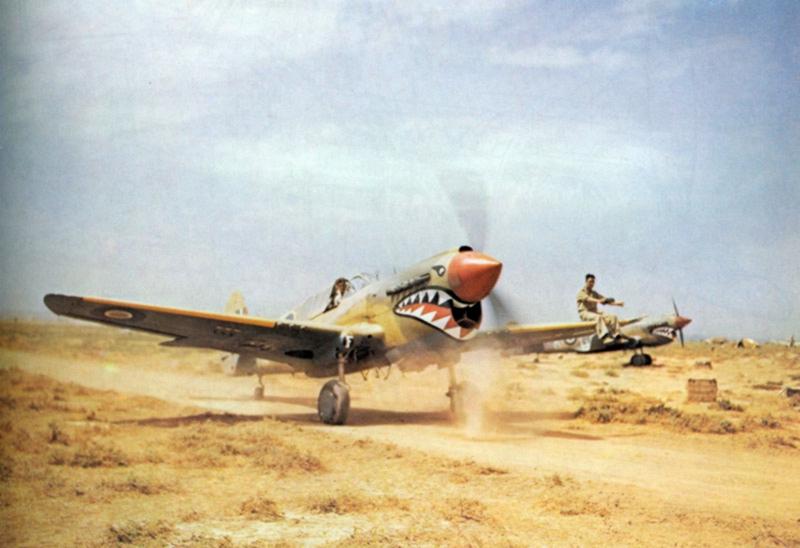Snell: Fighter planes and burning embers: Bring back the public spirit
A Kittyhawk P-40 fighter plane flown by Dennis Copping in World War II was recently found crashed in a desert in Egypt. The resilience of men like Coping has been lost in recent decades, and America herself needs to renew her ideology of cooperation and bipartisan leadership.
May 15, 2012
Sun-faded and sand-covered, a Kittyhawk P-40 fighter plane rests in the middle of the Egyptian Sahara Desert, having crashed there in 1942 during World War II.
Recently found, the dusty hulk of the once resplendent cog in the wheel of freedom lies silently on the desert floor without its pilot, Flight Sergeant Dennis Copping of the Royal Air Force. Nearby sits his outstretched parachute, wind beaten and frayed, a sign that Copping survived the crash and probably used it as shelter from the sun. The absence of his body, however, tells us that the sergeant must have attempted to walk out of the desert to save himself.
Britain’s war records tell us, sadly, Dennis Copping never made it out of Egypt alive.
Almost like a ghost, the warplane sits there in the middle of desolation, its propeller cast asunder by the impact; the nose crumpled like a wad of paper, the landing gear folded underneath. It is a mere figment, a dirty apparition of its once-powerful self. The fighter plane, with its sleek lines and aggressive appearance still quite readily visible in spite of the damage, speaks to us down through the ages: “I once did great things, and a great and brave man flew me along with other great men, so that you may live in a world without tyranny.”
The weight of history bears down on us always. Can you hear its message?
World War II was one of the last truly political acts America took part in. Yes, there were a few manifestations of magnificent public action in the years afterwards — the American space program, for example. But as the 1940s turned into the 1950s, and the ‘50s into the ‘60s, and the infinite expanse, that forever flowing river of time surged its way to us today, America’s public spirit faded like the war paint on the plane from the sun’s rays beating down upon it for 70 years.
The men and women from the World War II-era are called the “greatest generation,” responsible for ridding the world of fascism, putting men into space and on the moon, eliminating segregation and initiating the most prosperous period of American history. These were the people who built the interstate highways, gave us the Internet and, on the side, ensured the oppression of Communism didn’t spread.
The “Greatest Generation” was the generation of getting things done, the grand performers of public action. On the face of these acts, one might argue Adolf Hitler simply had to be defeated, that we had to get to the moon before the Russians because of the nuclear threat or that highways were created to foster economic growth. However, those blithe explanations neglect their expression of our public character.
We weren’t trying to beat the Russians to space and the moon, for example, simply because whoever controlled space could nuke anyone, anywhere, at any time, but because we had to prove that America and American values were superior to the Soviet tyrannical way of life. We had to beat the Russians because we had to prove America and our constitution, our laws, ethics, morals and our character — the very who-ness of who we are — was better.
In this period of time, in the four decades after World War II when Democrats were the constant majority and Republicans were always the minority, America was the can-do nation. Democrats now are quick to pat themselves on the back for this, but it wasn’t because they were better than Republicans. Rather, it was because Republicans weren’t the party of “no” and automatic opposition like they are today. Republicans were the party of the alternative — the yang to the Democrats’ yin.
Democrats came up with an idea; Republicans made it better. And vice versa.
Congressional research shows us clearly that this 40-odd year span marked an era of remarkable cooperation and collegiality in both the House and the Senate. There was no so-called “party line,” there was only Americans working for America. Democrats voted consistently with Republicans and Republicans voted with their Democratic partners on a daily basis. It was in this period America saw some of her greatest moments.
Today, though, America, like Sergeant Copping’s fighter plane, is without a pilot and is a figment of its former self. America is absent her men and women of courage to do what needs to be done; our leaders are missing in action. Whereas the members of Congress used to be capable of cooperation, Republicans and Democrats have taken up ideological arms against each other. Where are the Dennis Coppings of the political world, who will stand up together and say no to the ideological two-sidedness?
Walt Whitman said, “Nothing is ever really lost, or can be lost,” that “the embers left from earlier fires … shall duly flame again.” Hopefully America’s public spirit, like the old fighter plane once valiant, can be rediscovered, dusted off and put back into action.







